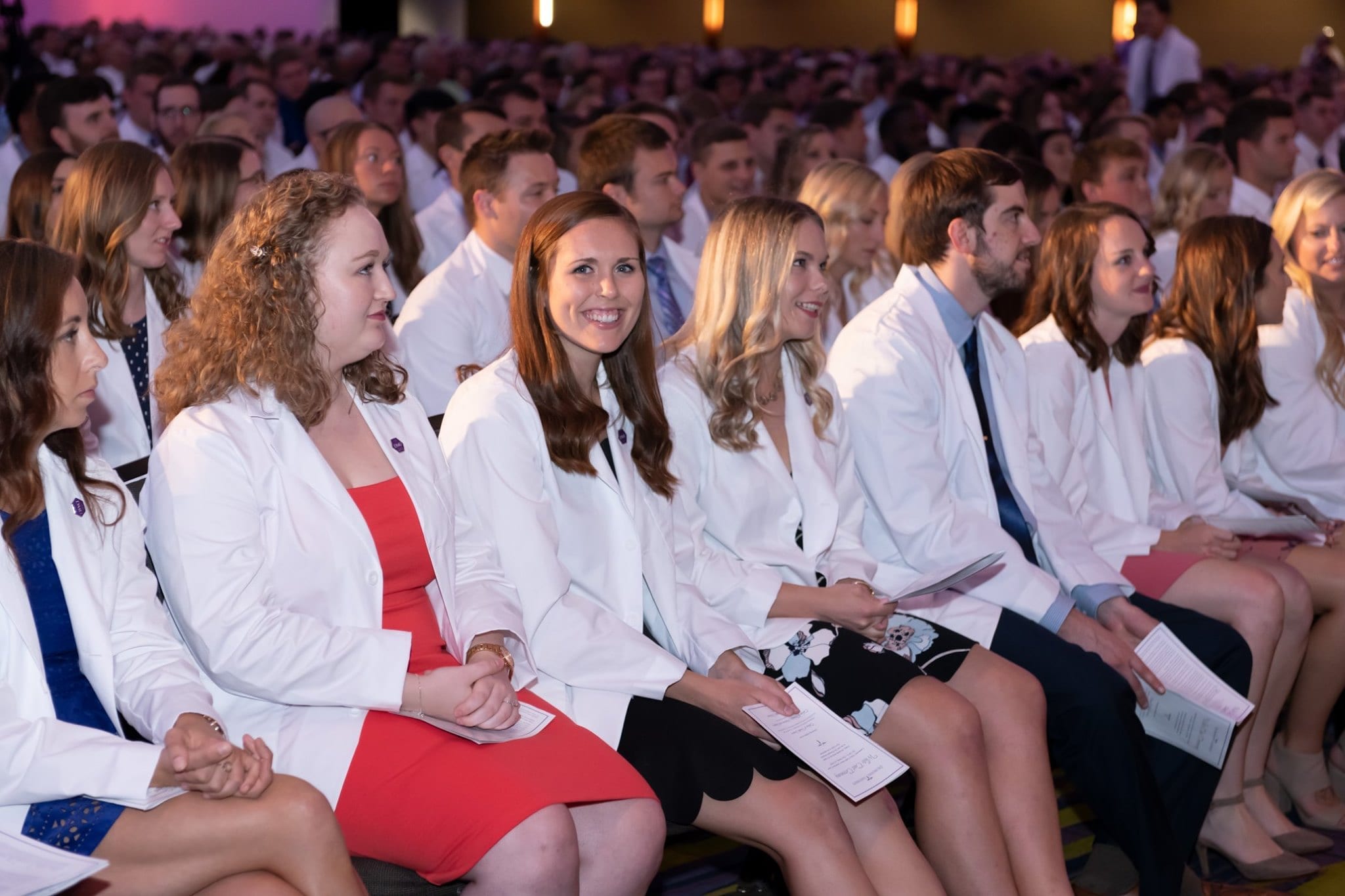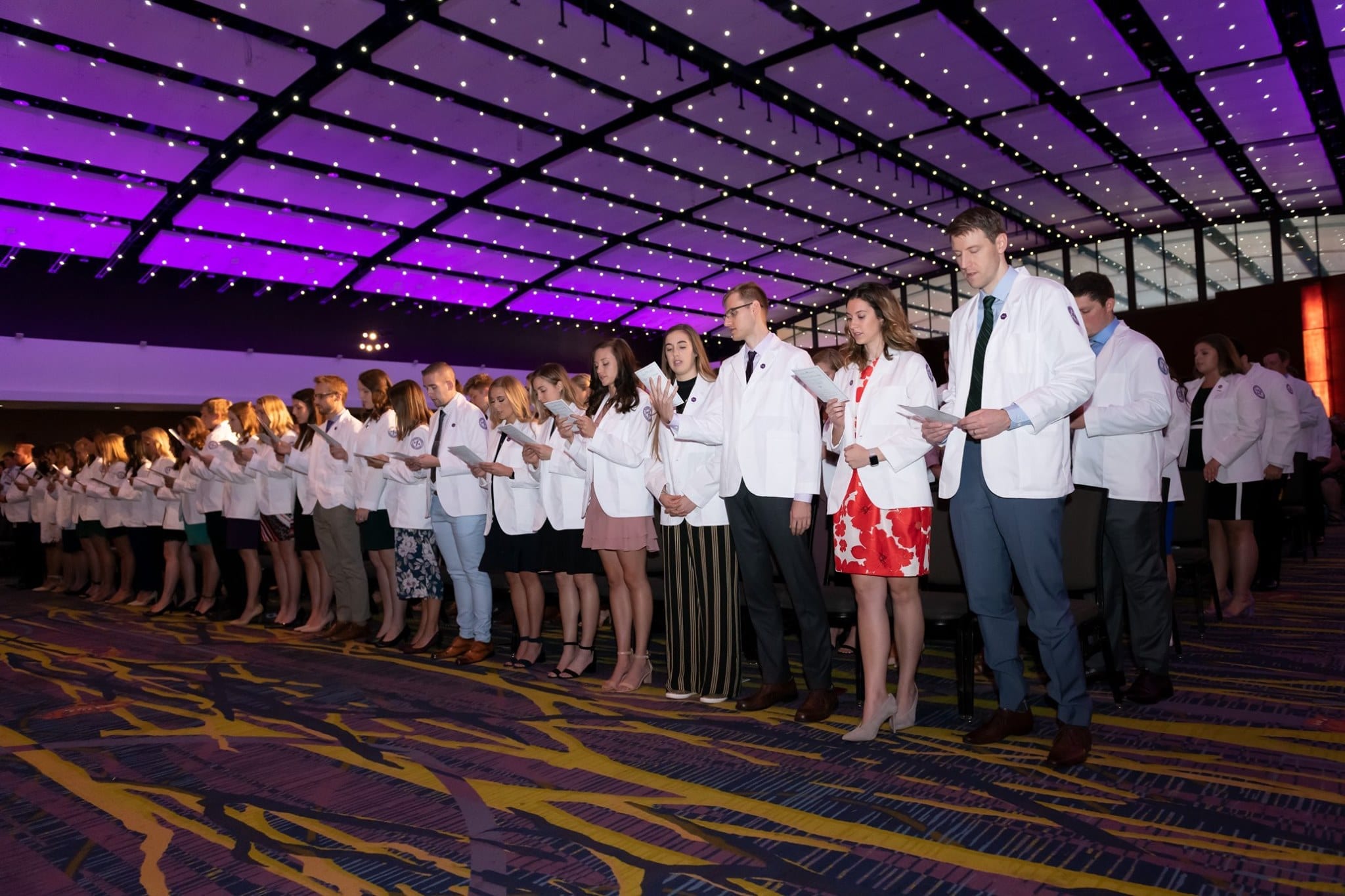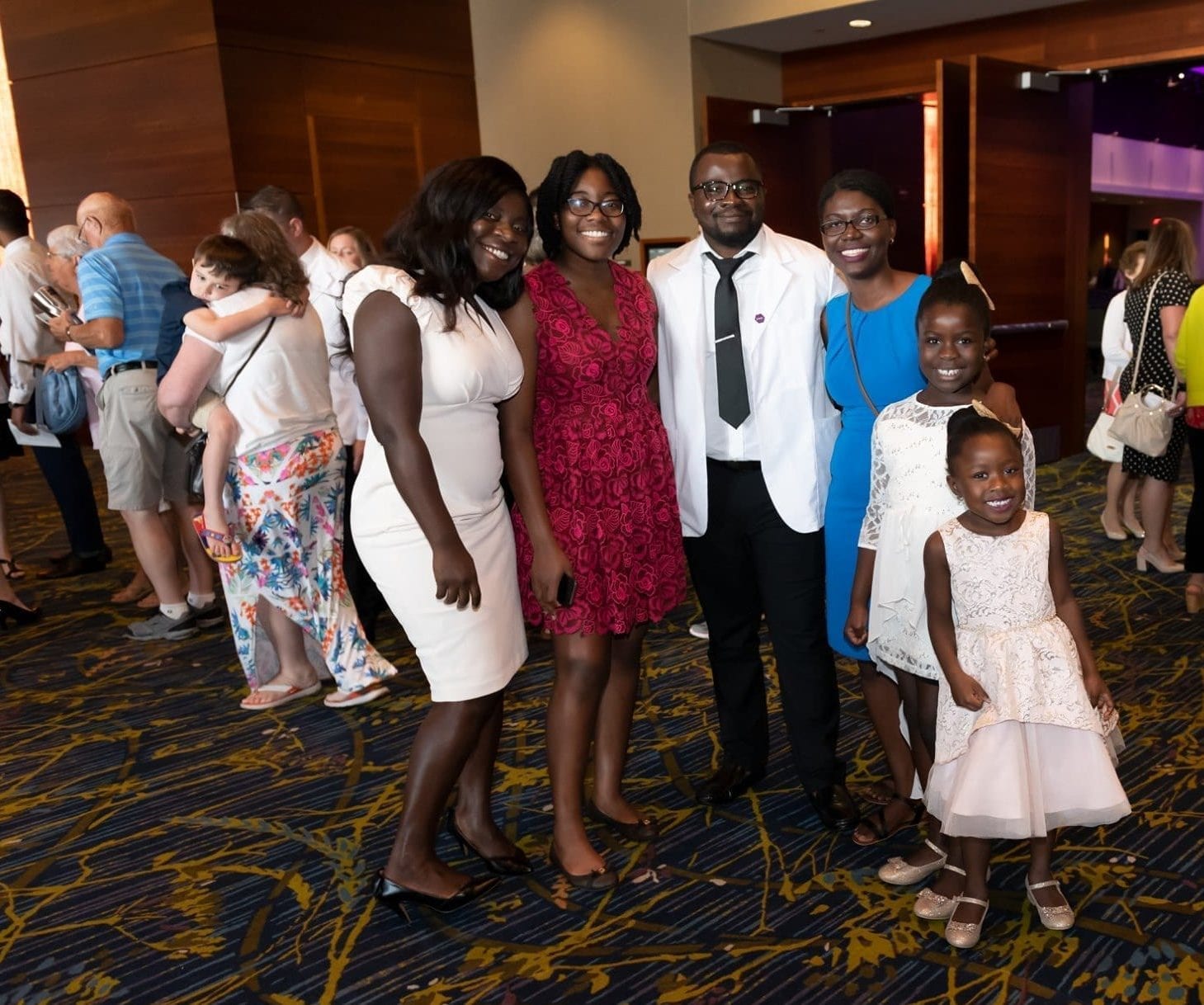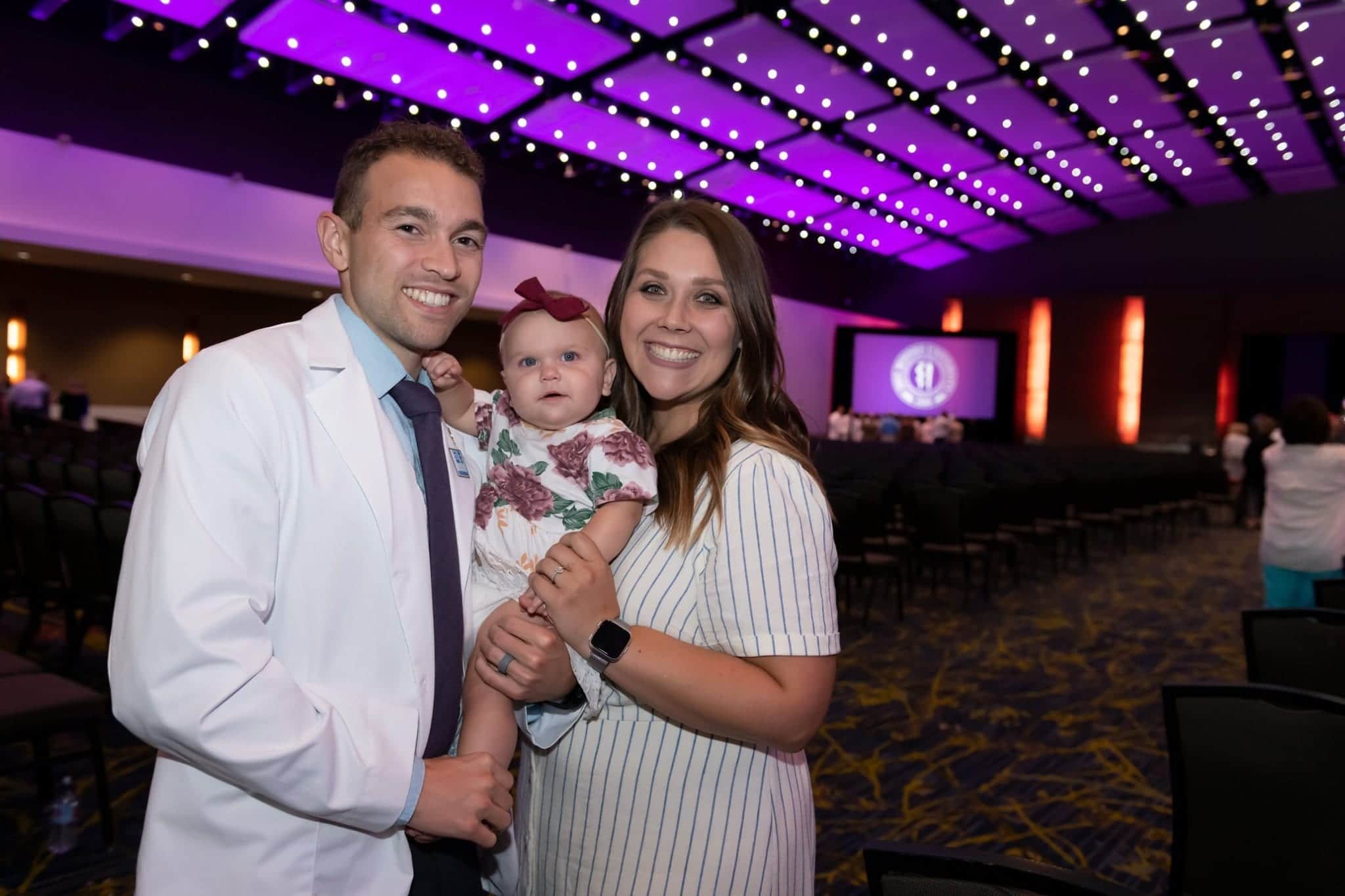Reflecting the interprofessional approach that contributes to effective health care, students in Des Moines University’s four clinical programs – osteopathic medicine, podiatric medicine and surgery, physical therapy and physician assistant studies – participated in a unified white coat ceremony on Aug. 23.

The 426 students put on their white coats, all provided by donors to the University, in front of hundreds of family members, friends, DMU leaders and faculty members.
“When you don the white coat today, you assume not only the responsibilities but also the obligations that attend to those who provide care to other human beings,” said DMU President and CEO Angela Walker Franklin, Ph.D. “These obligations include to be honorable in all phases of your life; to excel in your academic studies and training; to be compassionate and accountable; to collaborate with others as an interprofessional team member; and to support a culture of inclusiveness.”

Jodi Cahalan, Ph.D., M.P.H., M.S., PA-C, DFAAPA, dean of the College of Health Sciences, compared the white coat to the uniforms worn by athletic teams.
“I hope you have noticed and continue to see the University’s commitment to a team approach to health care, one in which all members are recognized and respected as important members providing the best possible care to patients,” she said. “Health care teams of today are strongest and safest when all players know their position, when they communicate well with each other and they listen to the person calling the plays, which in our case isn’t any one of us, but our patients.”
DMU’s mission of improving lives by educating diverse groups of highly competent and compassionate health professionals “aligns well” with the purpose of the white coat ceremony, said Robert Yoho, D.P.M., M.S., FACFAS, dean of the College of Podiatric Medicine and Surgery.

“Research shows the downward trend in empathy among health care providers starts to take root in professional school. The good news is I’m not seeing this trend.”
He noted several examples of empathy among DMU students, including one who’d contributed bone marrow to save the life of a child and another who collected notes of sympathy from students and faculty to give to a classmate who recently lost a loved one.

Steven Halm, D.O., FAAP, FACP, dean of the College of Osteopathic Medicine – the oldest academic program at the University – echoed comments that the white coat is a symbol of humanism. He then offered students a “second symbol”: how health care providers connect with patients through nonverbal behaviors. He described his “big four nonverbal cues that will make your first impression with patients the most meaningful”: smiling appropriately; making good eye contact; shaking patients’ hands unless it’s offensive in their culture; and “really, really listening” to patients.
“Eighty percent of the diagnoses you will make can be made accurately with the history alone,” he said. “Take your time talking with your patients, and take more time listening to them.”

